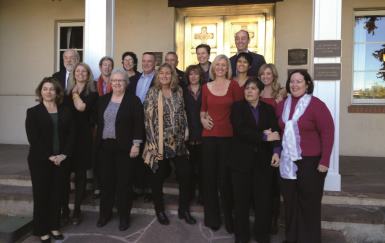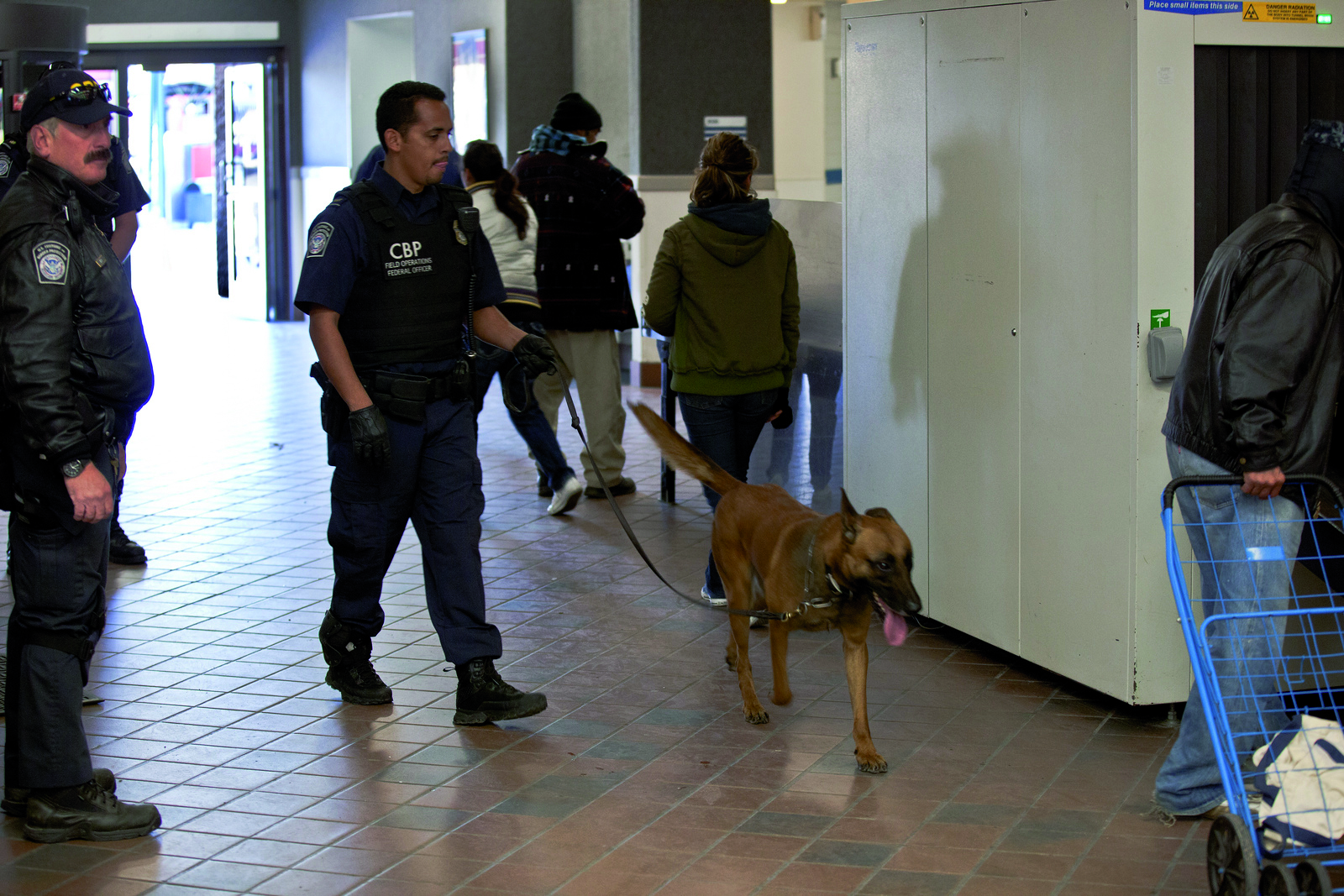SANTA FE, NM—Today, in a unanimous decision, the New Mexico Supreme Court ruled that the New Mexico Constitution requires the state to allow same-sex couples to marry. The court ruled that county clerks must issue marriage licenses to otherwise qualified same-sex couples and that the State of New Mexico must respect the marriages of all same-sex couples, including those who married before today’s decision. The plaintiff couples were represented by the American Civil Liberties Union (ACLU) of New Mexico, the national ACLU, the National Center for Lesbian Rights (NCLR), the law firm of Sutin, Thayer & Browne APC, and New Mexico attorneys Maureen Sanders, N. Lynn Perls, and J. Kate Girard.
Writing for the court, Justice Edward Chavez said that “barring individuals from marrying and depriving them of the rights, protections, and responsibilities of civil marriage solely because of their sexual orientation violates the Equal Protection Clause under Article II, Section 18 of the New Mexico Constitution. We hold that the State of New Mexico is constitutionally required to allow same-gender couples to marry and must extend to them the rights, protections, and responsibilities that derive from civil marriage under New Mexico law.”
Said ACLU-New Mexico Legal Director Laura Schauer Ives: “This truly is a historic and joyful day for New Mexico. As a state, we have always strived to treat all families with dignity and respect, and today’s decision allowing loving, committed same sex couples to marry continues that tradition. The more than 1000 same-sex couples who have already married in New Mexico can now rest certain knowing their marriages will be recognized and respected by our state.”
The six couples who are plaintiffs in the case filed a lawsuit seeking the freedom to marry in March 2013. In late August, Judge Alan Malott of the Second Judicial District Court in Albuquerque ordered the county clerks of Bernalillo and Santa Fe counties to begin issuing marriage licenses to same-sex couples. All 33 New Mexico County Clerks then intervened in the lawsuit and filed a petition asking the New Mexico Supreme Court to provide a statewide ruling on whether same-sex couples can marry. The Supreme Court agreed to hear the case and heard oral argument on October 23.
Before the New Mexico Supreme Court’s decision, county clerks in eight New Mexico counties had begun issuing marriage licenses to same-sex couples, and hundreds of same-sex couples married in those counties over the past few months. Today’s ruling clarifies that those marriages are valid and must be respected by the state.
Said NCLR Legal Director Shannon Minter: “Today’s decision by the New Mexico Supreme Court is a powerful affirmation that same-sex couples are equal members of New Mexico’s diverse culture and must be given the same legal protections and respect as other families. With this ruling, New Mexico joins 16 other states, the District of Columbia, and at least eight Native American tribes that permit same-sex couples to marry. This is an important day, not only for New Mexico, but for the entire country.”
Added Elizabeth Gill, staff attorney with the ACLU Lesbian Gay Bisexual and Transgender Project: “The past few years have seen an amazing show of support for the freedom to marry for all loving and committed couples. Today’s victory in New Mexico brings us one step closer to the day when marriage equality is a reality nationwide.”
###
The National Center for Lesbian Rights is a national legal organization committed to advancing the human and civil rights of the lesbian, gay, bisexual, and transgender community through litigation, public policy advocacy, and public education. www.NCLRights.org
The American Civil Liberties Union (ACLU) of New Mexico works through the courts, legislature, and public education to protect and extend civil liberties in New Mexico. Founded in 1963, the ACLU of New Mexico is an affiliate of the national ACLU. www.ACLU-NM.org
For more than 90 years, the ACLU has been our nation's guardian of liberty, working in courts, legislatures and communities to defend and preserve the individual rights and liberties that the Constitution and laws of the United States guarantee everyone in this country. www.ACLU.org
Date
Thursday, December 19, 2013 - 12:15pmFeatured image

